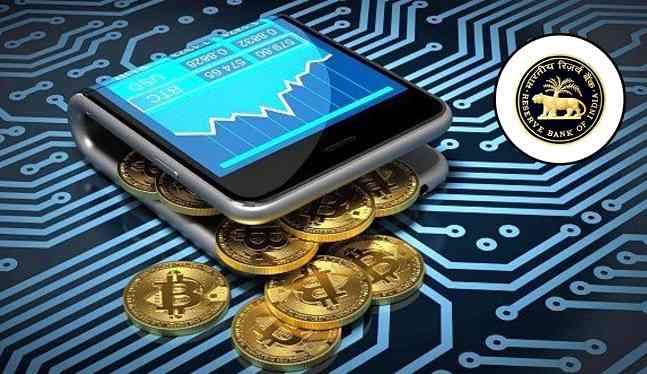RBI to launch first digital currency for wholesale traders
The Reserve Bank of India is planning to introduce a Central Bank Digital Currency (CBDC) this financial year, which initially only merchants doing wholesale business will be able to use it. The CBDC will be offered for use in retail and exempted for general use only after RBI examines its use in the wholesale business.

According to a Business Standard report, a senior RBI official said – “We are working on introducing CBDC for wholesale this year.”
CBDC was first announced by Union Finance Minister Nirmala Sitharaman in the Union Budget of 2022.
Nirmala Sitharaman had said that the introduction of CBDC will give a boost to the digital economy. Digital currency will also promote a more efficient and affordable currency management system. Therefore, it is proposed to introduce Digital Rupee, using blockchain and other technology, to be issued by RBI from 2022-23.
What is Central Bank Digital Currency (CBDC)?
According to the Reserve Bank of India (RBI), CBDC is a legal tender issued by the central bank in digital form, which is similar to fiat currency i.e. government recognized currency.
Digital fiat currency or CBDC can be transacted through a blockchain wallet. With CBDC, users can do both domestic and cross-border transactions.
No third party or bank is required for this. A CBDC is a digital or virtual currency that differs from private cryptocurrencies in some respects.
What are the benefits of CBDC?
Last year in the Lok Sabha, Minister of State for Finance Pankaj Choudhary had told that the introduction of CBDC will bring many important benefits. This will reduce the dependence on cash and the cost of transactions.
With the advent of CBDCs, there will be more robust, efficient, reliable, regulated, and legal tender-based transaction options. However, there are risks associated with this, which need to be evaluated.
Pankaj Choudhary had announced that the RBI has proposed amendments to the Reserve Bank of India Act, 1934, which would enable it to launch CBDCs.
In addition, as users of CBDCs increase, the cost of cross-border transactions for businesses and the government will come down.
According to the report, countries like Canada, China, South Korea, and Japan are also considering introducing CBDC.
How will a CBDC work?
The details of India’s first digital rupee have not yet been officially released, but Sharat Chandra, vice president of research and strategy at EarthID, has predicted how its system will be.
According to a report in Outlook, Sarat Chandra said that RBI will issue digital rupees to commercial banks, which will be authorized to allow retail users to open CBDC accounts.
Earlier, RBI Deputy Governor T Rabi Shankar had said that they are working on CBDC methodology, which will be based on wholesale accounts and retail accounts.
